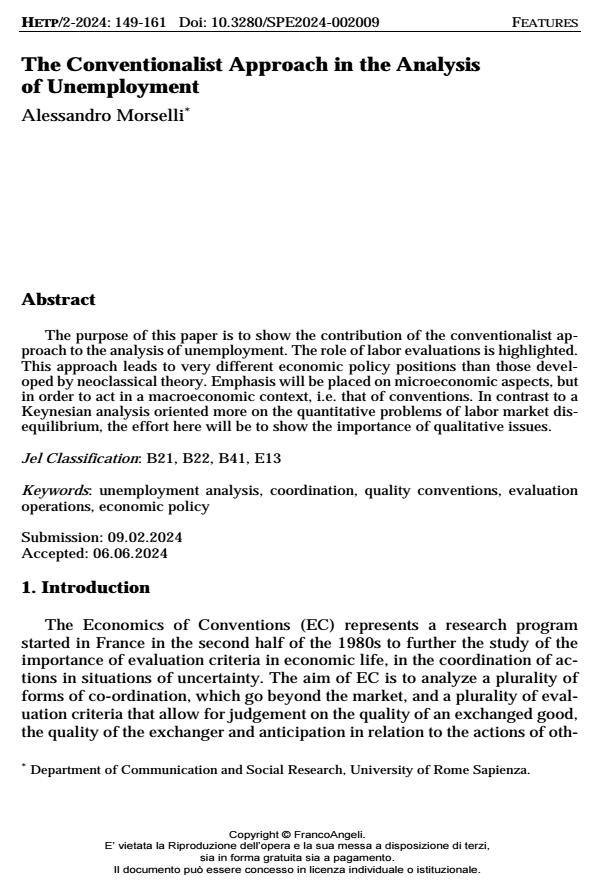The Conventionalist Approach in the Analysis of Unemployment
Titolo Rivista HISTORY OF ECONOMIC THOUGHT AND POLICY
Autori/Curatori Alessandro Morselli
Anno di pubblicazione 2025 Fascicolo 2024/2
Lingua Inglese Numero pagine 13 P. 149-161 Dimensione file 55 KB
DOI 10.3280/SPE2024-002009
Il DOI è il codice a barre della proprietà intellettuale: per saperne di più
clicca qui
Qui sotto puoi vedere in anteprima la prima pagina di questo articolo.
Se questo articolo ti interessa, lo puoi acquistare (e scaricare in formato pdf) seguendo le facili indicazioni per acquistare il download credit. Acquista Download Credits per scaricare questo Articolo in formato PDF

FrancoAngeli è membro della Publishers International Linking Association, Inc (PILA), associazione indipendente e non profit per facilitare (attraverso i servizi tecnologici implementati da CrossRef.org) l’accesso degli studiosi ai contenuti digitali nelle pubblicazioni professionali e scientifiche.
The purpose of this paper is to show the contribution of the conventionalist approach to the analysis of unemployment. The role of labor evaluations is highlighted. This approach leads to very different economic policy positions than those developed by neoclassical theory. Emphasis will be placed on microeconomic aspects, but in order to act in a macroeconomic context, i.e. that of conventions. In contrast to a Keynesian analysis oriented more on the quantitative problems of labor market disequilibrium, the effort here will be to show the importance of qualitative issues.
Parole chiave:unemployment analysis, coordination, quality conventions, evaluation operations, economic policy
Jel codes:B21, B22, B41, E13
Alessandro Morselli, The Conventionalist Approach in the Analysis of Unemployment in "HISTORY OF ECONOMIC THOUGHT AND POLICY" 2/2024, pp 149-161, DOI: 10.3280/SPE2024-002009